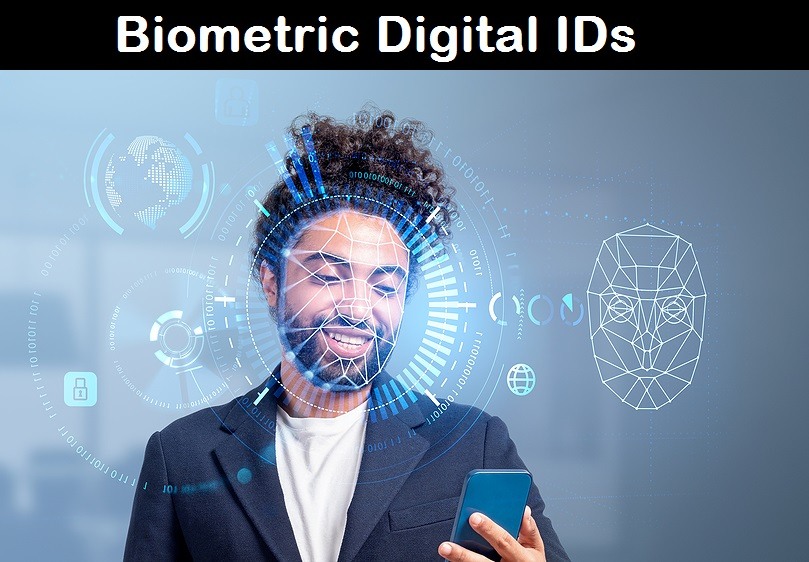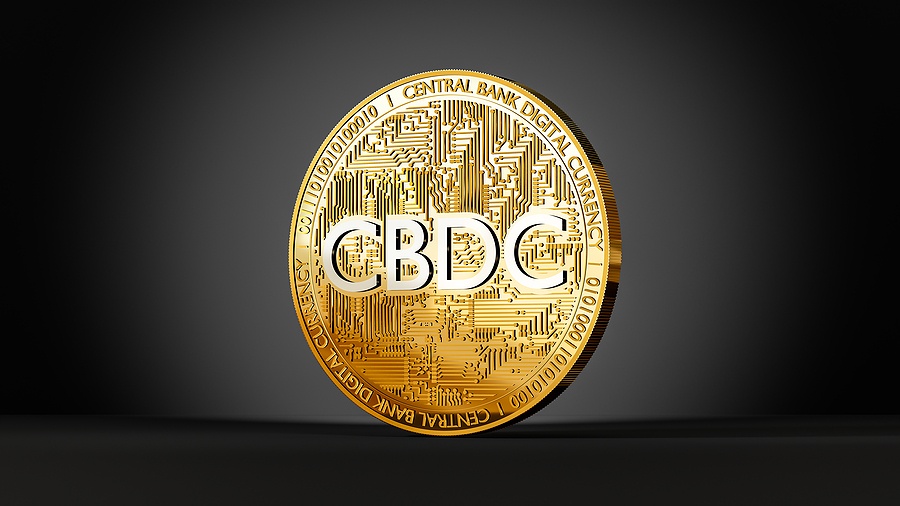by Brian Shilhavy, Health Impact News:

Imagine a world where you cannot purchase anything in a retail store, or online, or be able to access the cash in your bank account, unless you first use your cell phone to scan your face to prove your identity.
You are assured that your face image is “secure” and never shared or sold to third party advertisers, but now every time you scan your face to make a financial transaction, a new digital image of your face is stored somewhere, where it can be hacked or sold to the highest bidder.
TRUTH LIVES on at https://sgtreport.tv/
Now, every time you go out into the public where there are cameras everywhere today, from your neighbor’s door cameras to the cameras on street lights and traffic signals, to even the cameras in and around your car, someone with the technological know-how could literally trace every step you make, and everywhere you went, who you met, and possibly even everything you said and did with that person, because your national ID is now tied into your face scan which you have to constantly use with your national digital ID.
Does this sound like some futuristic science fiction movie? Because I assure you, it is not, and if you do not prepare yourself for the push to give up your biometric data, such as face scans, palm scans, and iris scans to obtain a National ID that will soon be required to participate in the economy, even when purchasing and doing banking online, then you will probably be completely helpless to resist when it comes.
And it’s coming soon, very soon, as the Bank for International Settlements (BIS) and the Bank of England are already testing such a system, as is the U.S.
Digital IDs will Precede CBDCs

Digital IDs will precede the adoptions of Central Bank Digital Currencies, and it was announced yesterday that UK payments and self-sovereign identity firm Nuggets has developed a digital wallet solution for the retail market and a UK Central Bank Digital Currency.
UK financial authorities work with industry on digital ID, US regulator signals support
UK payments and self-sovereign identity firm Nuggets has worked on developing a digital wallet solution for a retail use case of a potential UK Central Bank Digital Currency.
A CBDC is a digital version of a state’s fiat currency — like the U.S. dollar or the Euro — backed by a central bank. However, they are different from the likes of Bitcoin or Ethereum, as they are run on a private blockchain controlled by a government.
The work came as part of Phase 2 TechSprint of Project Rosalind, a joint initiative from the Bank for International Settlements (BIS) and the Bank of England, which taps private sector companies to develop real world use cases for CBDCs.
According to a statement by the BIS, the objective of the project “is to explore how this interface would best enable a central bank ledger to interact with private sector service providers to safely provision retail payments.”
According to the announcement, Nuggets worked with the Rosalind APIs in a sandbox environment to create a CBDC account.
The company then used CBDC to make retail payments with verifiable receipts, make a CBDC micropayment, and tested the ability to freeze, unfreeze and delete the CBDC account. (Full article.)
And while certain GOP politicians are allegedly opposing CBDCs and even trying to pass bills at the state level to prevent them, I don’t think anyone is opposing the adoption of digital IDs that require biometric data, which is the more immediate threat.
In fact, it is just the opposite happening as lawmakers are being pitched to adopt digital IDs because of the “threat of AI” where biometric IDs are seen as necessary to prevent identity theft.
US consumer protection bureau gives nod to digital ID
Regulators in the U.S. may be realizing the value of digital identity when it comes to fraud prevention.
These comments came during the semi-annual report of the Bureau of Consumer Financial Protection, where director Rohit Chopra answered questions from members of congress.
Bill Foster, a representative of Illinois’s 11th congressional district, highlighted the risks of generative AI being used to defraud consumers, for example how “voice cloning” is being used to trick people out of their money.
Foster touched on the idea of providing all citizens with “digital identity” to act as “digital proof” or identity as a way to combat these risks and help consumers.
In reply, Chopra said: “This identity verification issue, I think if we can solve that as a core part of infrastructure in our country, we could actually reduce a lot of fraud as well.
They adds that: “The benefits would be big also for market participants.”
“You can see in jurisdictions where they have implemented this digital layer they get a lot of benefit from it,” he explains.
However the regulator did not provide a great deal of detail about the actual implementation of these digital identities for U.S. citizens, saying “how you actually do so is the question.”
Chopra did acknowledge that: “People should at least know if they are talking to a human.”
Many welcomed the statement, with Jeremy Grant, the managing director of law firm Venables LLP saying it was “fascinating” that a banking regulator was addressing digital ID as an infrastructure issue in a Twitter post. (Full article.)
As we reported last month (May, 2023), 44 percent of Americans are now logging in to their online accounts with biometrics, rather than a password, and more than half of Americans today, 58 percent, state that they are interested in replacing their passwords with biometric passkeys. See:
44% of Americans Now Using Biometrics Instead of Passwords to Log In to Their Accounts – We are Closer to a One World Financial System
Undoubtedly the bulk of those 44% of Americans that are using biometrics are owners of Apple phones which already use biometrics such as fingerprints for identity.
An article written by Michael Kan of PCMag.com today reported that Apple is phasing out passwords altogether in favor of biometric passkeys. So soon, you will not be able to use an Apple phone without these biometric passkeys.
Phasing Out Passwords: Apple To Automatically Assign Each User a Passkey
Apple is taking a big step to end traditional passwords by automatically enrolling users into the industry alternative known as passkeys.
The company plans to do so when it launches iOS 17, iPadOS 17 and macOS Sonoma later this year, likely around September. Once they roll out, the operating systems will automatically assign a passkey to the user’s Apple ID, the company says.
Read More @ HealthImpactNews.com



